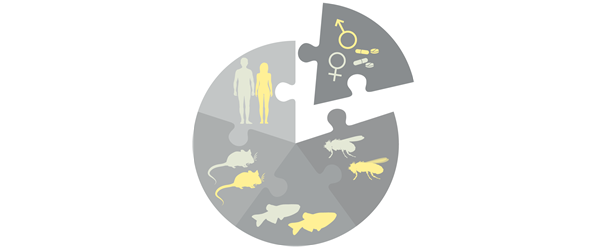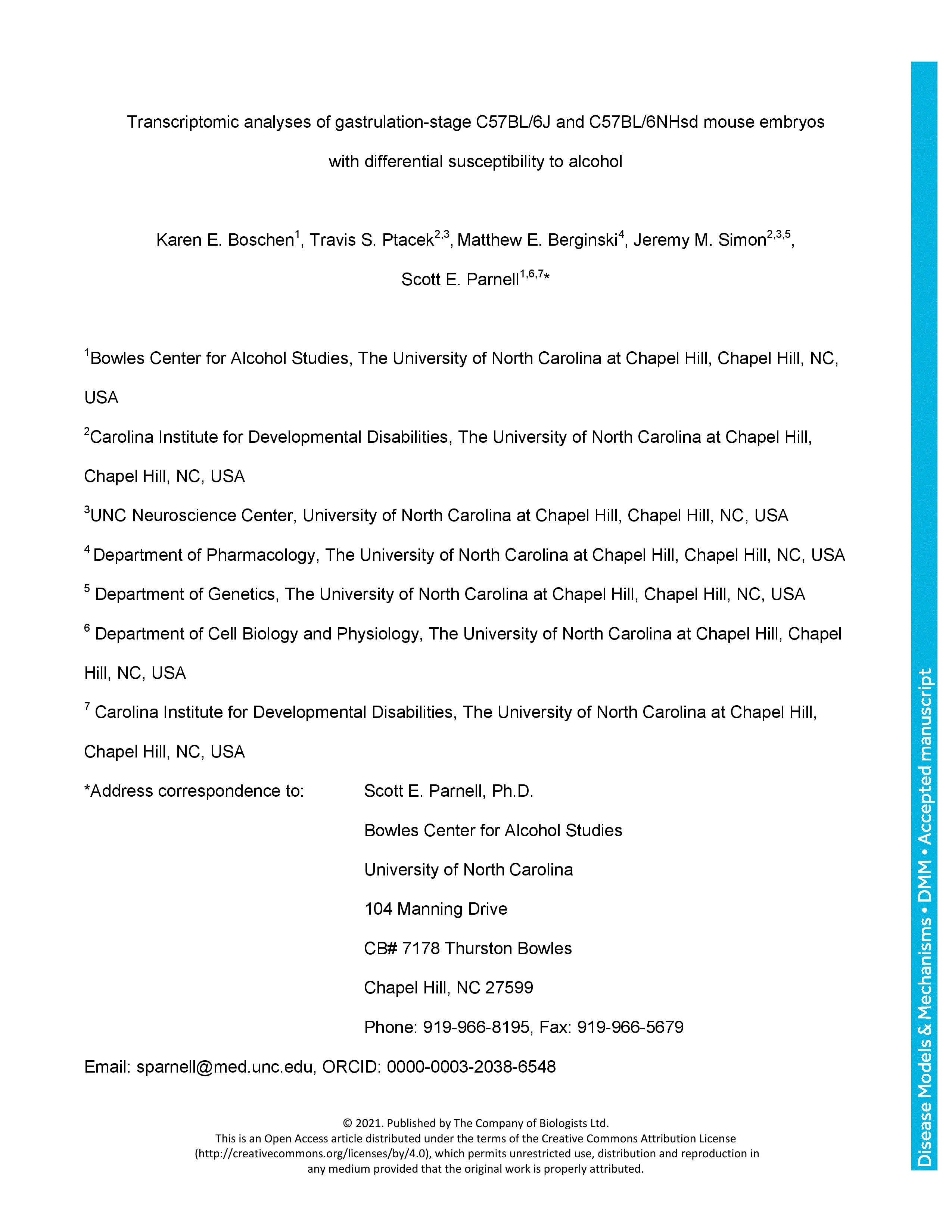Fetal Alcohol Spectrum Disorders (FASD) are a serious public health concern, affecting approximately 5% of live births in the US. The more severe craniofacial and central nervous system malformations characteristic of FASD are caused by alcohol exposure during gastrulation (embryonic day 7 in mice; 3rd week of human pregnancy). Genetics are a known contributor to differences in alcohol sensitivity in humans and in animal models of FASD. Our study profiled gene expression in gastrulation-stage embryos from two commonly used, genetically similar mouse substrains, C57BL/6J and C57BL/6NHsd, that differ in alcohol sensitivity. First, we established normal gene expression patterns at three finely resolved timepoints during gastrulation and developed a web-based interactive tool. Baseline transcriptional differences across strains were associated with immune signaling, indicative of their molecular divergence. Second, we examined the gene networks impacted by alcohol in each strain. Alcohol was associated with a more pronounced transcriptional effect in the 6J's vs. 6N's, matching the 6J's increased susceptibility. The 6J strain exhibited down-regulation of cell proliferation and morphogenic signaling pathways and up-regulation of pathways related to cell death and craniofacial defects, while 6N's show enrichment of hypoxia (up) and cellular metabolism (down) pathways. Collectively, these datasets 1) provide insight into the changing transcriptional landscape across gastrulation in two commonly used mouse strains, 2) establish a valuable resource that enables the discovery of candidate genes that may modify susceptibility to prenatal alcohol exposure that can be validated in humans, and 3) identify novel pathogenic mechanisms potentially involved in alcohol's impact on development.
Transcriptomic analyses of gastrulation-stage C57BL/6J and C57BL/6NHsd mouse embryos with differential susceptibility to alcohol
Currently Viewing Accepted Manuscript - Newer Version Available
Karen E. Boschen, Travis S. Ptacek, Matthew E. Berginski, Jeremy M. Simon, Scott E. Parnell; Transcriptomic analyses of gastrulation-stage C57BL/6J and C57BL/6NHsd mouse embryos with differential susceptibility to alcohol. Dis Model Mech 2021; dmm.049012. doi: https://doi.org/10.1242/dmm.049012
Download citation file:
Advertisement
Sex matters in preclinical research

DMM calls for improved inclusion, analysis and reporting of sex as a biological variable in preclinical animal modelling research. Read the full Editorial by Monica J. Justice.
Subject collection: Building advocacy into research

DMM’s new series - Building advocacy into research - features interviews, ‘The Patient’s Voice’, with patients and advocates for a range of disease types, with the aim of supporting the highest quality research for the benefit of all patients affected by disease.
Travelling Fellowships for early-career researchers

DMM and its sister journals offer Travelling Fellowships of up to £3,000 to graduate students and post-doctoral researchers wishing to make collaborative visits to other laboratories. Find out more about our Travelling Fellowships and read stories from previous grant recipients.
Read & Publish Open Access publishing: what authors say

We have had great feedback from authors who have benefitted from our Read & Publish agreement with their institution and have been able to publish Open Access with us without paying an APC. Read what they had to say.
The Forest of Biologists
Our Publisher Claire Moulton recently visited the two Woodland Trust UK sites where we are planting new native trees for published Research and Review papers and protecting ancient woodland on behalf of our peer reviewers.
Other journals from
The Company of Biologists



